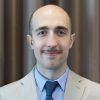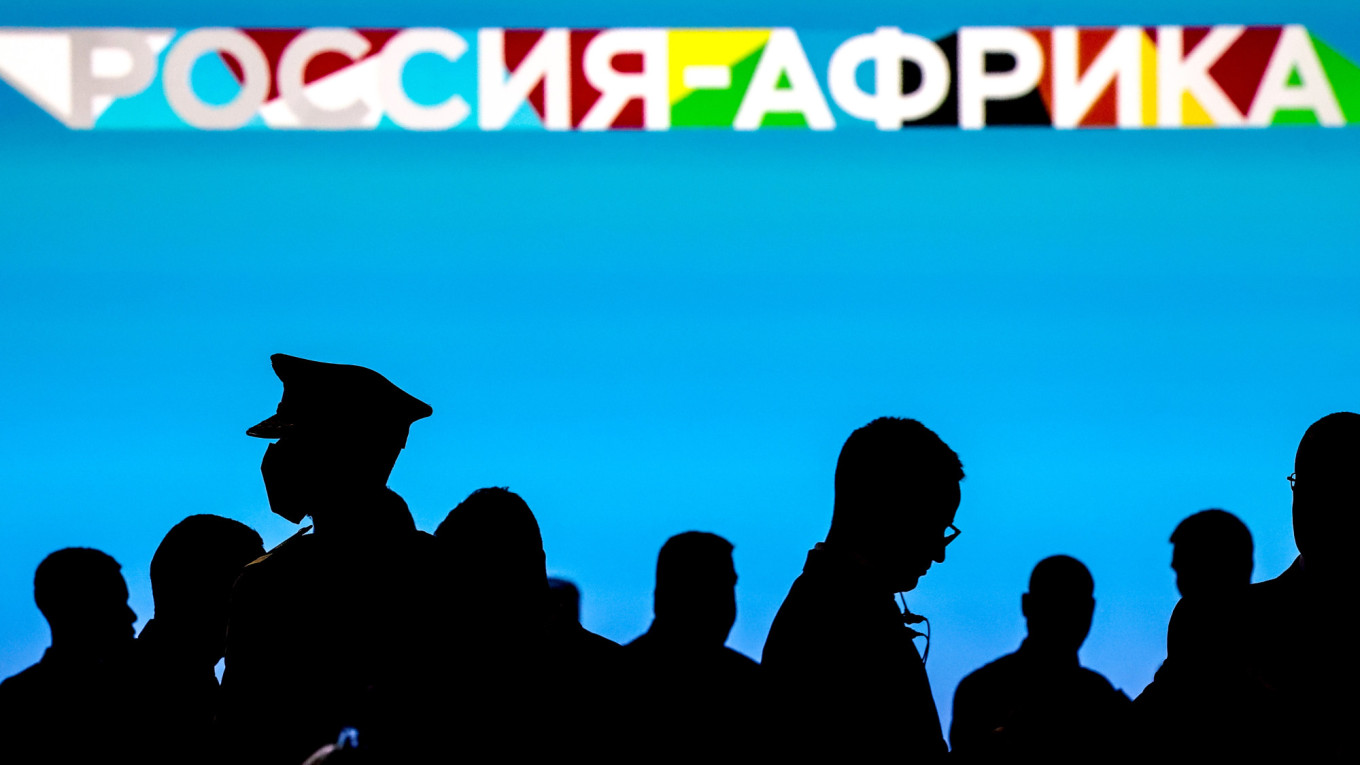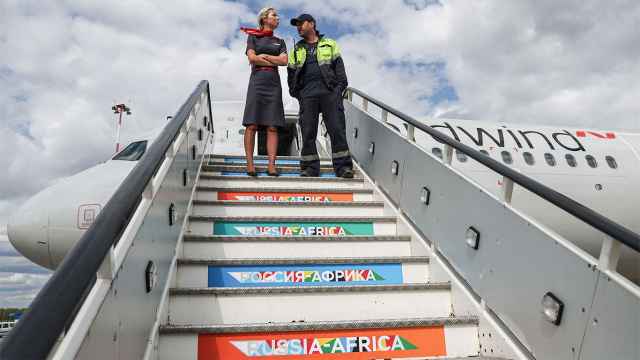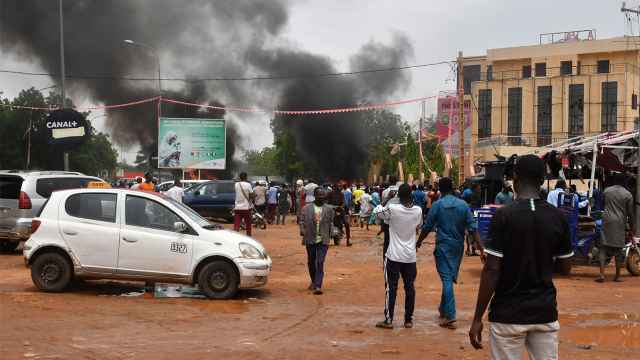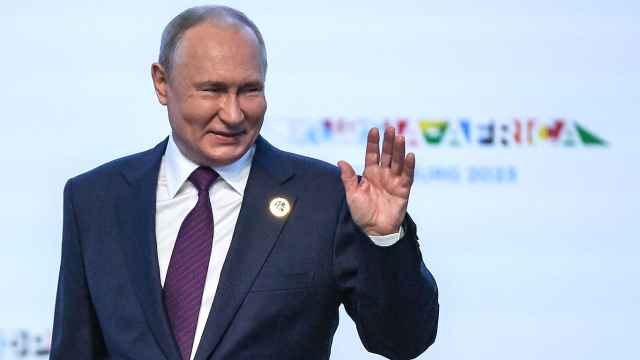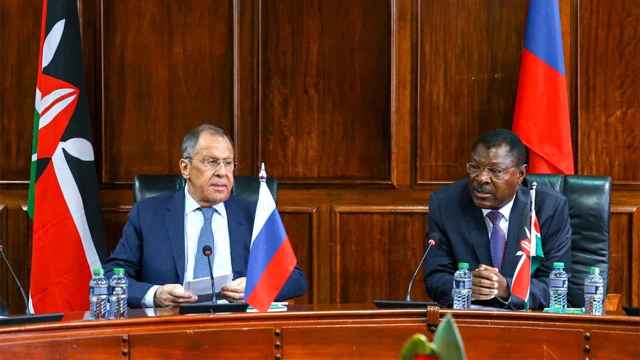Analyzing Russia’s Mali strategy, researchers Maxime Audinet and Emmanuel Dreyfus described it as a two-sided presence, featuring official and unofficial sides. This dual nature of Russia’s Mali engagements can be found also in other Russian engagements in the continent and was overtly on display in St. Petersburg during the 2023 Russia-Africa Summit and its accompanying public forum.
Russia’s African engagements consist of an official side, characterized by trade and investment, diplomatic relations, public diplomacy, and UN initiatives, among other forms of engagement. The other side is the unofficial or covert element. This is where the Prigozhins and Malofeyevs come into play, as well as state-controlled media RT and Sputnik and Russia’s intelligence agencies. The 2023 Russia-Africa Summit pretended to be all about the presentable public face of Russia-Africa ties, but the hidden “dark” side of Russia’s foreign policy was well represented as well.
Message control
On the official side, the aims were rather diffuse, featuring a catch-all agenda from business to culture. Still, some points featured more heavily. The summit and forum official partners heavily feature agricultural, mining, and technology companies, as well as educational institutions. Unable to compete with China, the U.S. and Europe in other areas, Russia has made these areas into some of the niches where it can remain competitive on the continent. Russia’s exit from the grain deal made connectivity, logistics and agriculture urgent topics for many of the participants.
The substance of speeches from Russian officials — Putin included — was rather grim; a changing and chaotic world order was described, where Africa and Russia are under attack from the West on all fronts. In this scenario, Russia and Africa are meant to cooperate — like they allegedly did during the Cold War — to thwart the West’s aggressive policies and create a truly multipolar world. These are all well-established tropes in Russia’s Africa diplomacy.
The outcome of the summit evinced many of the contradictions of Russia’s African diplomacy. Putin has insisted that the conference included representatives from nearly all countries of Africa, and that it was the fault of Western pressure that no more than 17 heads of state attended. Some deals were closed between Russian and African companies, and there also were some agreements signed between Russian government bodies and African counterparts.
Despite its weight on the continent’s affairs, Russia’s full-scale invasion of Ukraine was seldom discussed in public. The topic of the African peace proposal was touched upon by Putin, but generally the Russian speakers succeeded at separating peace in Europe from the Kremlin’s vision of international security. Namely, Putin claims that Russia helps Africa strengthen its sovereignty, which is the guarantee for the security of that continent. This rhetoric renders Africa a passive recipient of Russia’s help, and not a potential source of solutions for Russia, much less an equal partner.
Other contradictions were visible as well. For years, the African Union (AU) has condemned the new juntas in West Africa and has advocated for a return to civilian rule in Burkina Faso and Mali. By engaging the juntas in areas such as defense and security, Russia is going against the AU on this point. The contradiction is not lost on the Kremlin, as the summit organizers made sure to leave a spot empty in the group picture between Putin and coup leader Ibrahim Traoré.
The power of mingling
The unofficial side is absent from the plenary sessions — or barely hinted at — and rather reserved for chats in the corridor and meetings at the sidelines. Putin’s message to the public forum attendees in fact stresses the informal discussions and encounters one commonly seeks out from these events. Indeed, the summit featured a variety of individuals well known to be relays of Russian influence abroad.
Making headlines again was Yevgeny Prigozhin. Unlike the 2019 summit, Prigozhin made an appearance in St. Petersburg during the conference, meeting a member of the Central African Republic delegation. Also, Viktor Bout — who has already hinted before at returning to “business” — was present at the forum at a panel about logistics. Konstantin Malofeyev and his organizations featured at a panel on “Russophilia.” Karina Kadyrova — Ramzan Kadyrov’s daughter — was present as well, in a panel chaired by war criminal Maria Lvova-Belova.
Yevgeny Primakov’s tenure at Russia House (also called Rossotrudnichestvo) also reflects well the dual nature of Russia’s Africa policy. Officially, Rossotrudnichestvo is a cultural cooperation agency of the Russian government, operating along the lines of the Alliance Française or the Goethe-Institut. However, its activities cross the boundary between the two sides of Russia’s dual approach, often acting as a relay of Russian influence and wartime propaganda, including in Africa. Since 2022, Primakov has pushed his organization into a large expansion in Africa.
Many of these figures have well-trodden paths in Africa, but their influence inside Russia itself is secondary. The main actors of the “power vertical” — other than Putin — were absent or discreet at the summit, not to take away attention from the official side and the summitry. At the same time, Mikhail Kovalchuk was present at the forum. Due to his vast wealth and media influence, his brother Yury Kovalchuk is considered by some to be the second most powerful individual in Russia. Mikhail’s presence, as well as of members of his Kurchatov Institute, suggests that the Kovalchuki were interested in this event.
Already well present in the continent, Russian intelligence had opportunities to connect with their counterparts at the summit. For instance, the leader of the intelligence community of the Republic of Congo, Jean-Dominique Okemba — cousin of long-time ruler Denis Sassou Nguesso — was present at the summit and even spoke at the public forum. On the Russian side, as another example, figures such as Malofeyev and Prigozhin are well-known to have contacts with Russia’s intelligence.
Russia’s limited offer to Africa
What are the implications for the African states involved? We can think of the countries represented at the summit as divided between those with governments dependent on Russia and those that are hedging with Russia’s offer. In the case of the former, these are the juntas and other isolated regimes, whose survival in power depends on the weapons, money and security services afforded by Moscow. In the latter, these are those eager to receive international attention in the face of the unfolding climate catastrophe and looming hunger, many countries are choosing to engage Russia despite its criminal war of aggression. These two groups have — in this very general and simple scheme — different outcomes.
Those dependent on Russia showed themselves to be loyal to Moscow. The embattled Touadéra — heavily enmeshed in the Wagner network — and the Mali junta in particular find in Russia their only interlocutor to avoid isolation. Both CAR and Mali were well-represented at the summit. The Burkina Faso junta might be considering a similar path.
For everyone else, Russia’s credibility as a viable partner is ever in question. Russia’s trade with Africa has grown since 2000 but remains marginal and lopsided, with Moscow seldom buying products from the continent. On grains, the UN chief Antonio Guterres asserted that the donations mentioned by Putin cannot replace the grain deal. The Kremlin can only dismiss the African peace proposal for so long before alienating the governments invested in the success of that initiative.
Many specific outcomes are yet to be seen, such as the attempt at reviving relations with Mozambique or the possibility of mining operations in South Sudan. On July 25, the expectation was that the summit will result in a Russia-Africa action plan for the 2023-2026 period. Ultimately, the summit failed to confirm Russia’s role in Africa as a key player in the continent’s affairs. Under Putin, and especially since Russia’s full-scale invasion of Ukraine, Russia has become more of a problem than a solution for Africa.
A Message from The Moscow Times:
Dear readers,
We are facing unprecedented challenges. Russia's Prosecutor General's Office has designated The Moscow Times as an "undesirable" organization, criminalizing our work and putting our staff at risk of prosecution. This follows our earlier unjust labeling as a "foreign agent."
These actions are direct attempts to silence independent journalism in Russia. The authorities claim our work "discredits the decisions of the Russian leadership." We see things differently: we strive to provide accurate, unbiased reporting on Russia.
We, the journalists of The Moscow Times, refuse to be silenced. But to continue our work, we need your help.
Your support, no matter how small, makes a world of difference. If you can, please support us monthly starting from just $2. It's quick to set up, and every contribution makes a significant impact.
By supporting The Moscow Times, you're defending open, independent journalism in the face of repression. Thank you for standing with us.
Remind me later.

